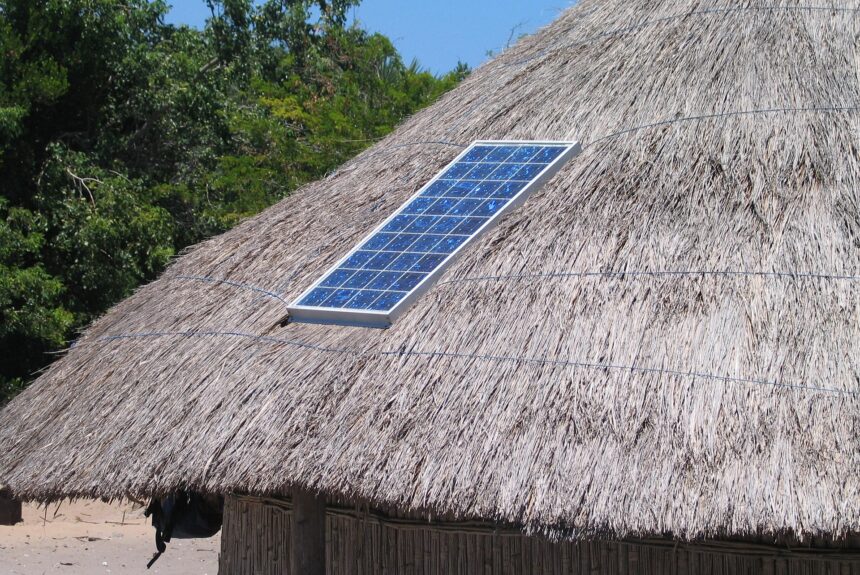Two weeks ago at COP27 global leaders unveiled a historic loss and damage fund. While the details are still murky, the fund would support developing countries “for losses arising from droughts, floods, rising seas and other disasters that are attributed to climate change,” according to a United Nations press release. The reality, however, is that wealth transfers such as these fail to deliver lasting solutions to economic development and climate change. Poor countries must climb the economic ladder to flourish and protect themselves from climate change. This starts with access to reliable and affordable energy.
>>>READ: The Folly of Climate Reparations
If the goal is to increase resilience in developing nations, then the UN’s loss and damage fund misses the mark. Wealth transfers, like the loss and damage fund, are short-sighted and only provide temporary relief. They do not address systemic issues such as energy accessibility, poverty, or government corruption, all of which hamstring climate and economic progress. Additionally, mechanisms such as these lead to the government picking energy winners and losers which stall the innovations that are needed to improve societal and environmental well-being.
Instead of multilateral spending sprees, world leaders should focus on increasing economic prosperity. As Marc Thiessen argued in a recent column for The Washington Post:
We should be doing everything possible to accelerate [economic] progress, so millions more can join the ranks of the middle-class majority. Instead, climate activists are advocating policies that would deny poor nations access to inexpensive, abundant fossil fuels they need to develop their economies — which would ultimately leave tens of millions of people in poverty and more vulnerable to climate-induced disasters.
To make up for lost economic growth, activists are pushing government-to-government wealth transfer payments. First came a proposed $100 billion-a-year fund that rich countries agreed to a decade ago to pay poor countries to reduce emissions and forgo fossil fuels. Now, at the U.N. Climate Change Conference in Egypt, known as COP27, wealthy nations have agreed to pay poor nations reparations for costs of natural disasters supposedly caused by the industrialized world’s use of fossil fuels.
Restricting access to affordable, reliable energy disproportionately hurts the developing world and the most vulnerable people in the world that are trapped in poverty. In an op-ed for The Wall Street Journal after COP26 last year, Magatte Wade said:
Africans deserve prosperity as much as everyone else, but we can’t get there without significant increases in power generation. A forced and hasty shift away from fossil fuels would cripple the continent’s economies. Not long ago, it was popular to discuss whether trade or foreign aid would help Africa most. The world’s activists now focus on climate instead of inequity, and serious concern about the condition of African people has vanished.
Access to cheap and reliable energy is one the quickest way for countries to develop, giving them the ability to adapt to a changing climate. Using Sub-Sahara Africa as a case study, Stanford University researchers found that communities in Uganda that had access to power were able to increase their wealth at about twice the rate of those that did not have access to electricity.
>>>READ: After COP27, Unleash Economic Freedom
Rather than enacting failed multilateral wealth transfers, global leaders can tackle global poverty and global climate change by implementing policies rooted in economic freedom.
This starts by recognizing the role that fossil fuels can play in delivering affordable, clean power to the developing world. Furthermore, keeping all energy options available can allow economic growth to be done in a way that is less carbon-intensive than what has been historically seen. Richer countries can export more advanced technologies such as nuclear power, renewables, and carbon capture to emerging economies to allow them to develop quicker and cleaner.
Curbing global poverty is necessary to reduce the impacts of climate change. The importance of access to reliable and affordable energy in reaching these goals cannot be overstated. As Thiessen concluded in his Washington Post article:
Climate change is real. But forcing developing countries to abandon fossil fuels — and denying tens of millions the opportunity to join the nascent global middle class — will cost more lives. And no amount of reparations could ever make up for that.
The views and opinions expressed are those of the author’s and do not necessarily reflect the official policy or position of C3.
